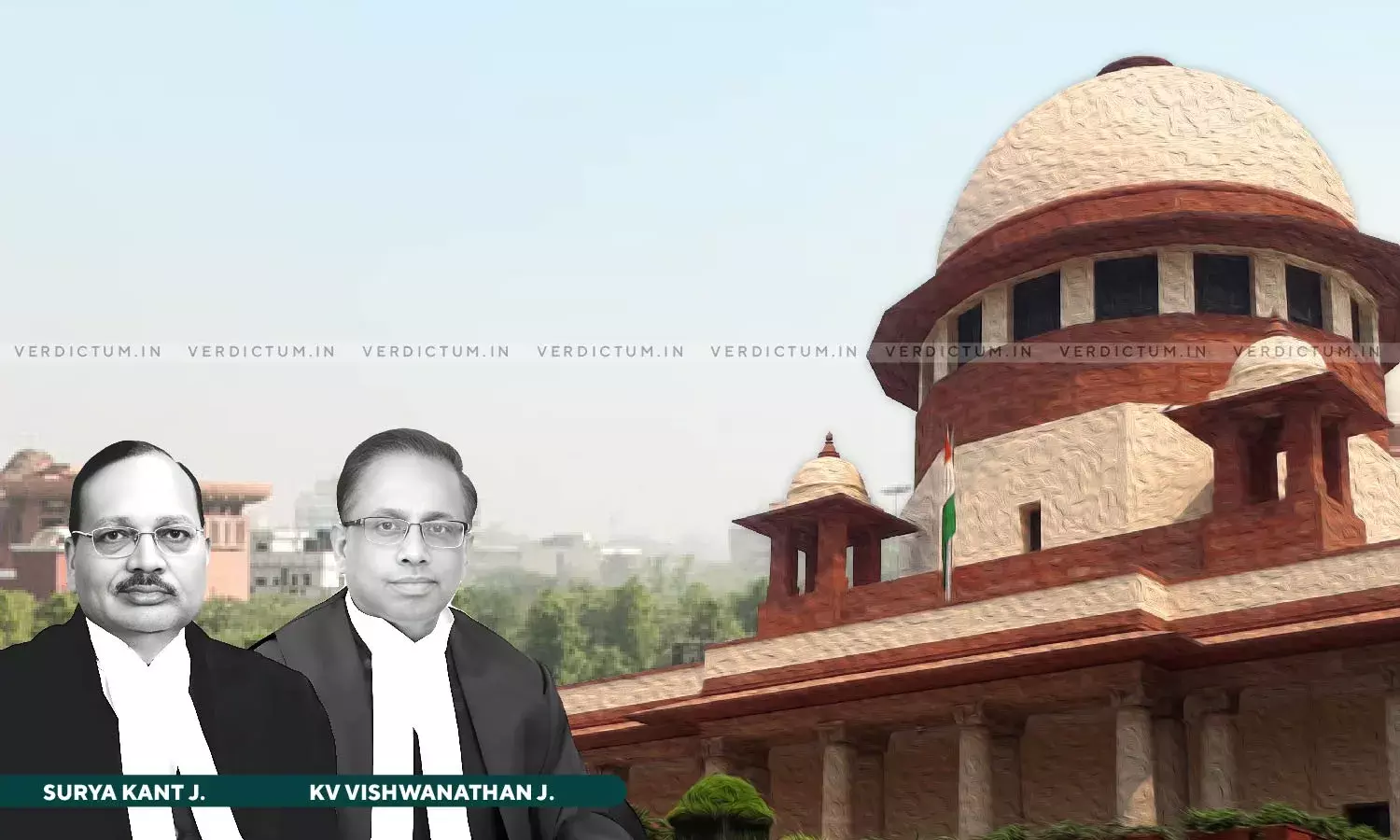Ensure That No Mechanical Entries In History Sheet Are Made Of Individuals Simply Because They Hail From Disadvantaged Communities: SC Urges Police Authorities
The Supreme Court emphasized the necessity to ensure that no mechanical entries in History Sheet are made of innocent individuals, simply because they happen to hail from the socially, economically and educationally disadvantaged backgrounds
The Court held that the studies in the public domain show a pattern of unfair, prejudicial and atrocious mindset against such persons.
The bench comprising Justice Surya Kant and Justice K.V. Viswanathan while noting the issue of the mechanical entries in history sheets against innocent individuals belonging to SC / ST and other underprivileged castes and sections of Society observed, “In exercise of our suo motu powers, propose to expand the scope of these proceedings so that the police authorities in other States and Union Territories may also consider the desirability of ensuring that no mechanical entries in History Sheet are made of innocent individuals, simply because they happen to hail from the socially, economically and educationally disadvantaged backgrounds, along with those belonging to Backward Communities, Scheduled Castes & Scheduled Tribes."
Senior Advocate Sanjay Jain appeared for the Respondents.
The Court expanded the scope of the proceedings in Amanatullah Khan's judgment so that the police authorities in other States and Union Territories may also consider the desirability of ensuring that no mechanical entries in History Sheet are made of innocent individuals, simply because they happen to hail from the socially, economically and educationally disadvantaged backgrounds, along with those belonging to Backward Communities, Scheduled Castes & Scheduled Tribes.
The Court stated that while it is not sure about the degree of authenticity of mechanical entries but there are some studies available in the public domain that reveal a pattern of an unfair, prejudicial and atrocious mindset.
The Court stated that all the State Governments are therefore expected to take necessary preventive measures to safeguard such communities from being subjected to inexcusable targeting or prejudicial treatment.
“We must bear in mind that these pre-conceived notions often render them ‘invisible victims’ due to prevailing stereotypes associated with their communities, which may often impede their right to live a life with self-respect.”, the Court added.
The Court stated that the value of human dignity and life is deeply embedded in Article 21 of our Constitution. According to the Court the expression ‘life’ unequivocally includes the right to live a life worthy of human honour and all that goes along with it.
“Self-regard, social image and an honest space for oneself in one’s surrounding society, are just as significant to a dignified life as are adequate food, clothing and shelter.”, the Court stated.
The Court further stated that a periodic audit mechanism overseen by a senior police officer, as directed for the NCT of Delhi, will serve as a critical tool to review and scrutinize the entries made, to ascertain that these are devoid of any biases or discriminatory practices.
The Court directed all the States/Union Territories to revisit their policy regime and consider whether suitable amendments to the pattern of the ‘Delhi Model’ are required to be made.
Finally, the Court directed to forward a copy of this judgement to the Chief Secretary and Director General of Police of all States and Union Territories to enable them to consider and comply with what has been held.




